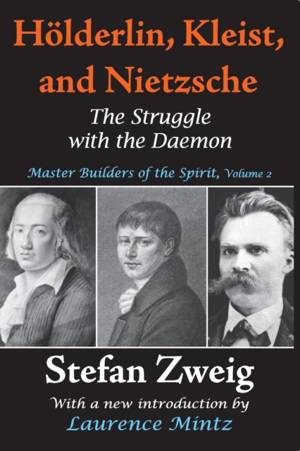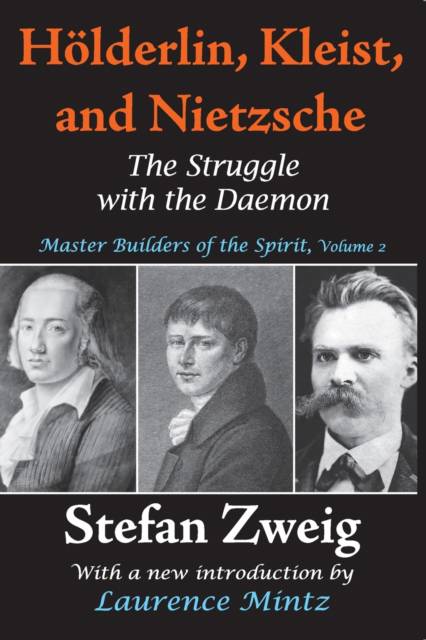
Je cadeautjes zeker op tijd in huis hebben voor de feestdagen? Kom langs in onze winkels en vind het perfecte geschenk!
- Afhalen na 1 uur in een winkel met voorraad
- Gratis thuislevering in België vanaf € 30
- Ruim aanbod met 7 miljoen producten
Je cadeautjes zeker op tijd in huis hebben voor de feestdagen? Kom langs in onze winkels en vind het perfecte geschenk!
- Afhalen na 1 uur in een winkel met voorraad
- Gratis thuislevering in België vanaf € 30
- Ruim aanbod met 7 miljoen producten
Zoeken
Omschrijving
This is the second volume in a trilogy in which Stefan Zweig builds a composite picture of the European mind through intellectual portraits selected from among its most representative and influential figures. In Hölderlin, Kleist, and Nietzsche, Zweig concentrates on three giants of German literature to portray the artist and thinker as a figure possessed by a powerful inner vision at odds with the materialism and scientific positivism of his time, in this case, the nineteenth century.Zweig's subjects here are respectively a lyric poet, a dramatist and writer of novellas, and a philosopher. Each led an unstable life ending in madness and/or suicide and not until the twentieth century did each make their full impact. Whereas the nineteenth-century novel is socially capacious in terms of subject and audience, the three figures treated here are prophets or forerunners of modernist ideas of alienation and exile. Hölderlin and Kleist consciously opposed the worldly harmoniousness of Goethe's classicism in favor of a visionary inwardness and dramatization of the subjective psyche. Nietzsche set himself as a destroyer and rebuilder of philosophy and critic of the degradation of the German spirit through nationalism and militarism.Zweig's choice of subjects reflects a division in his own soul. The image of Goethe recurs here as the ultimate upholder of Zweig's own ideals: scientist and artist, receptive to world culture, supremely rational and prudent. Yet Zweig was aware that Hölderlin, Kleist, and Nietzsche were more daring explorers of the dangerous and destructive aspects of man that needed to be seen and comprehended in the clarifying light of poetry and philosophy.
Specificaties
Betrokkenen
- Auteur(s):
- Uitgeverij:
Inhoud
- Aantal bladzijden:
- 340
- Taal:
- Engels
- Reeks:
Eigenschappen
- Productcode (EAN):
- 9781412811354
- Verschijningsdatum:
- 15/09/2010
- Uitvoering:
- Paperback
- Formaat:
- Trade paperback (VS)
- Afmetingen:
- 152 mm x 229 mm
- Gewicht:
- 458 g

Alleen bij Standaard Boekhandel
+ 198 punten op je klantenkaart van Standaard Boekhandel
Beoordelingen
We publiceren alleen reviews die voldoen aan de voorwaarden voor reviews. Bekijk onze voorwaarden voor reviews.









